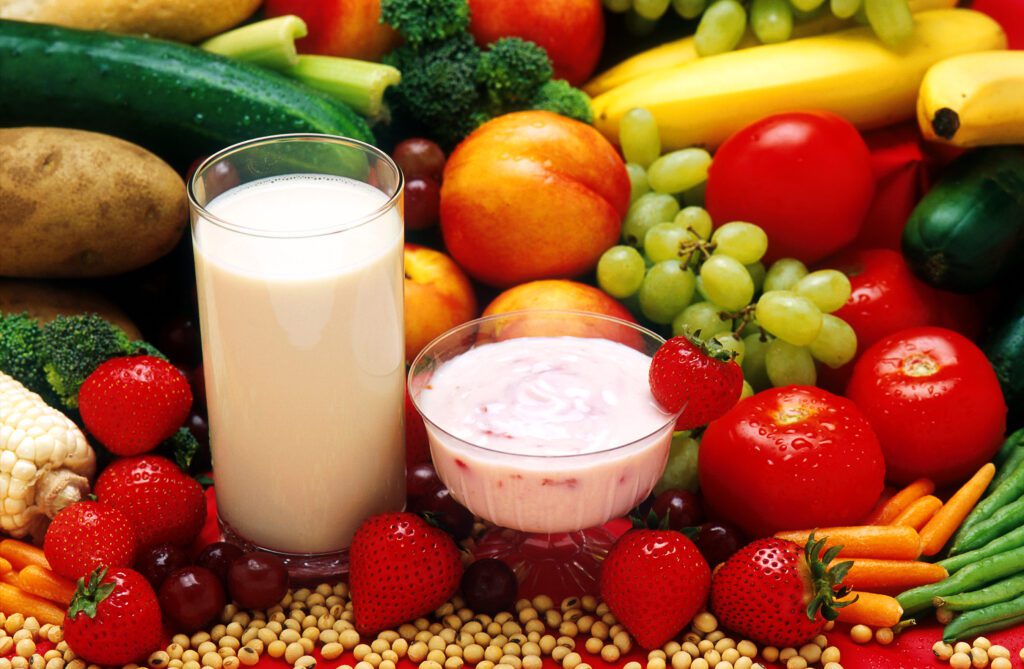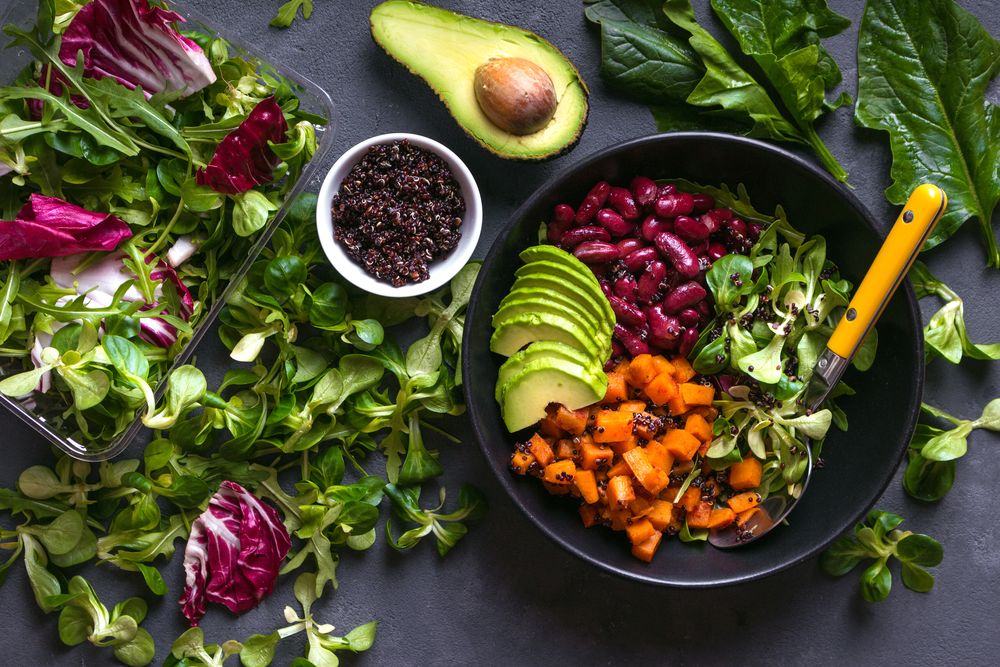Effective Weight Loss Food Plan
Effective Weight Loss Food Plan – Losing weight can be challenging, significantly, when changing your eating habits. Many try fad diets or extreme calorie restrictions, but these approaches are often unsustainable and can lead to nutritional deficiencies. However, an effective weight loss food plan is balanced, nutritious, and sustainable. In this article, we will discuss the fundamental principles of an effective weight loss food plan and provide a sample meal plan to help you achieve your weight loss goals.
Why Diet is Important for Weight Loss
Diet plays a crucial role in weight loss. If you consume more calories than your body needs, the excess calories will be stored as fat. On the other hand, if you consume fewer calories than your body needs, your body will burn stored fat for energy, resulting in weight loss. Therefore, it is essential to finish the suitable types of food and manage portion sizes to create a calorie deficit.
The Importance of Nutrient-Dense Foods
Regarding weight loss, it’s not just about the number of calories you consume; it’s also about the quality of the calories. Nutrient-dense foods give your body the vitamins, minerals, and other essential nutrients to function correctly. These foods also tend to be lower in calories, making them an excellent weight-loss choice.
The Role of Protein
Protein is an essential nutrient for weight loss. It helps you feel full and satisfied, which can reduce your overall calorie intake. Additionally, protein has a higher thermic effect than carbohydrates or fat, meaning your body burns more calories digesting protein than other nutrients.
The Importance of Portion Control
Portion control is another essential aspect of a weight loss food plan. Even healthy foods can lead to weight gain if consumed in excess. Therefore, managing portion sizes is necessary to ensure you are not overeating.
The Key Principles of an Effective Weight Loss Food Plan
An effective weight loss food plan is sustainable and balanced. Here are the fundamental principles of an effective weight loss food plan:
Focus on Nutrient-Dense Foods
Include plenty of fruits, vegetables, lean protein sources, and whole grains. These foods give your body the essential nutrients to function correctly while keeping you full and satisfied.
Limit Processed Foods
Processed foods are high in calories, sugar, and unhealthy fats. These foods can contribute to weight gain and other health problems. Limit your intake of processed foods and opt for whole, unprocessed foods instead.
Control Portion Sizes
Managing portion sizes is essential for weight loss. Use smaller plates, measure your food, and avoid eating straight from the package to help control portion sizes.
Drink Plenty of Water
Drinking plenty of water can help you feel full and satisfied, making it easier to manage your calorie intake. Aim for at least eight glasses of water a day.
Be Mindful of Snacking
Snacking can significantly contribute to weight gain, especially if you snack on high-calorie foods. Be mindful of your snacking habits and choose healthy snacks like fruit, nuts, or vegetables.
Limit Sugary Beverages
Sugary beverages like soda, juice, and sports drinks can be a significant source of calories. Limit your intake of these beverages or opt for water, herbal tea, or low-calorie drinks instead.

Sample Meal Plan for Weight Loss
Here is a sample meal plan that incorporates the fundamental principles of an effective weight loss food plan:
Breakfast:
- Oatmeal with fresh berries and nuts or seeds
- Whole grain toast with avocado and sliced tomatoes
- Veggie omelet (Gram flour) made with spinach, mushrooms, and bell peppers
Snack:
- Apple slices with almond butter
- Carrot sticks with hummus
- Greek yogurt with chopped fruit and honey
Lunch:
- Spinach salad with mixed vegetables, chickpeas, and a light vinaigrette dressing
- Grilled vegetable wrap with hummus and a side of fruit
- Lentil soup with whole-grain bread
Snack:
- Smoothie made with unsweetened almond milk, frozen berries, and spinach
- Rice cakes with peanut butter and banana slices
- Roasted chickpeas with a sprinkle of spices
Dinner:
- Grilled tofu or tempeh with mixed vegetables and brown rice
- Chickpea and vegetable stir-fry with quinoa
- Stuffed bell peppers with black beans and brown rice
It’s important to remember that weight loss is not just about what you eat but also about how much you eat. Practice portion control and listen to your body’s hunger and fullness signals. Drinking plenty of water throughout the day and engaging in regular physical activity to support your weight loss goals is also essential.
Tips for Effective Weight Loss
Sure, here are some additional tips for an effective weight-loss food plan:
- Choose high-fiber foods: High-fiber foods such as vegetables, fruits, whole grains, and legumes can help you feel full for longer and reduce cravings. Include at least 25-30 grams of fiber in your daily diet.
- Avoid processed foods: Processed foods are often high in calories, sugar, and unhealthy fats and low in nutrients. Instead, choose whole, natural foods that are minimally processed.
- Include protein-rich foods: Protein can help you feel full and satisfied and also plays an essential role in muscle maintenance and repair. Some vegetarian protein sources include beans, lentils, tofu, tempeh, nuts, and seeds.
- Limit added sugars and fats: Added sugars and fats can contribute to weight gain and other health problems. Limit your sugary drinks, desserts, and processed foods, and choose healthy fats such as avocados, nuts, and seeds.
- Practice mindful eating: Mindful eating involves paying attention to your food, savoring each bite, and being aware of your hunger and fullness signals. This can help you make healthier food choices and avoid overeating.
Remember, the key to effective weight loss is to create a calorie deficit by consuming fewer calories than you burn through physical activity and metabolism. However, it’s essential to do this sustainably and healthily, so talk to your doctor or a registered dietitian if you have any concerns.
Conclusion
An effective weight loss food plan is balanced, nutritious, and sustainable. Focus on nutrient-dense foods, control portions, and avoid snacking and sugary beverages. Incorporate lean protein sources, whole grains, and plenty of fruits and vegetables into your diet. With these fundamental principles in mind, you can create a meal plan that helps you achieve your weight loss goals without sacrificing taste or nutrition.
FAQs about Effective Weight Loss Food Plan
Question 1. Do I need to count calories to lose weight?
Answer 1. While counting calories can be helpful, it is not necessary for weight loss. Focus on nutrient-dense foods and portion control instead.
Question 2. Can I still eat carbs on a weight-loss food plan?
Answer 2. Yes, carbohydrates are an essential part of a healthy diet. Opt for whole-grain sources of carbohydrates like brown rice, quinoa, and whole-wheat bread.
Question 3. Can I have cheat meals on a weight-loss food plan?
Answer 3. Yes, having the occasional cheat meal is okay. However, be mindful of portion sizes and frequency.
Question 4. Do I need to exercise to lose weight?
Answer 4. While diet is essential for weight loss, exercise can help speed up the process and improve overall health.
Question 5. How much weight can I expect to lose on a weight-loss food plan?
Answer 5. The weight you can expect to lose on a weight loss food plan varies depending on your starting weight, calorie intake, and activity level. Aiming for a slow and steady weight loss of 1-2 pounds per week is recommended for long-term success.



